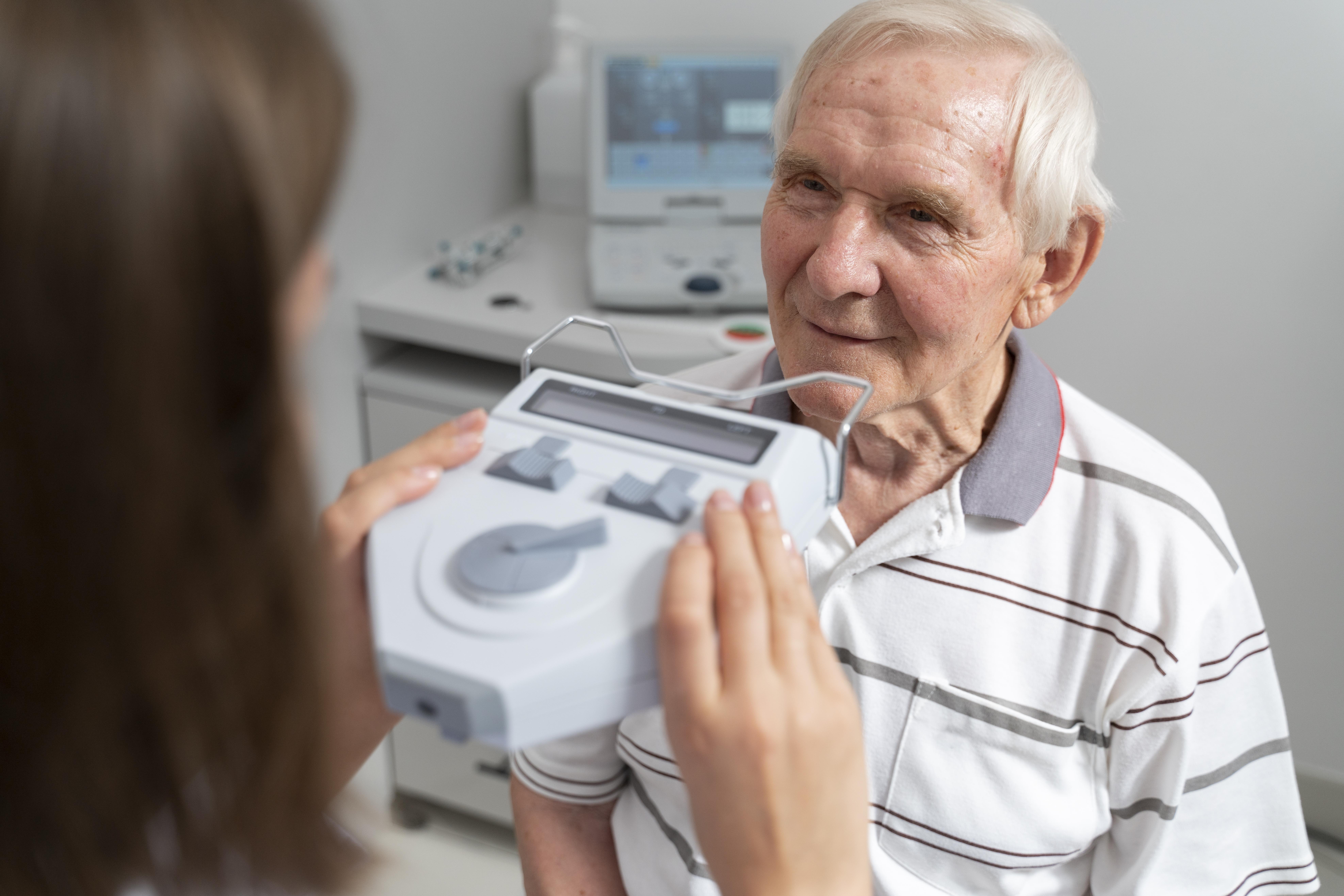The Role of Routine Eye Exams in Preventing Vision Loss
Protecting your sight is crucial. Sometimes, that means facing hard truths about eye health. Routine eye exams play a vital role in preventing vision loss, something often overlooked in our busy lives. This article emphasizes the importance of these checkups, especially for seniors and those in assisted living facilities in Harleysville. Early detection is key to preserving vision.
Table of Contents:
- Why Regular Eye Exams Matter So Much
- Common Culprits Behind Vision Loss
- Unmasking the Silent Thief: Glaucoma
- The Power of Early Detection: Glaucoma and Beyond
- The Role of Routine Eye Exams in Preventing Vision Loss
- How Assisted Living Supports Eye Health
- The Frequency of Eye Exams: A Personalized Approach
- Supporting a Senior Through an Assisted Living Community
- Conclusion
Why Regular Eye Exams Matter So Much
Routine eye exams are much more than just getting a new glasses prescription. They offer a thorough assessment of your ocular health, catching potential problems early. This proactive approach to eye disease management helps prevent vision loss. It detects diseases in their early stages, even before noticeable symptoms appear.
Common Culprits Behind Vision Loss
Several conditions can lead to vision loss if left unchecked. These include macular degeneration, glaucoma, cataracts, and diabetic retinopathy. Early detection through regular checkups is vital for these conditions. Early intervention offers the best chance for successful treatment.
Unmasking the Silent Thief: Glaucoma
Glaucoma quietly damages the optic nerve, leading to gradual, irreversible vision loss. A comprehensive eye exam can detect glaucoma early. During a comprehensive eye exam, the doctor performs several tests.
These tests include checking eye pressure, evaluating peripheral vision (visual field), and examining the optic nerve. It’s a detailed health checkup for your eyes, assessing their overall wellness and detecting conditions early.
Comprehensive eye exams assess visual acuity and identify potential vision problems. They go beyond a simple lens exam or contact lens exam.
The Power of Early Detection: Glaucoma and Beyond
Early glaucoma detection allows for interventions like prescription eye drops, laser treatment, or surgery. This protects vision and improves quality of life. Without intervention, glaucoma and other eye diseases can severely impair vision.
Routine eye exams are preventative maintenance for your eyes. Addressing potential issues early prevents significant damage and potential blindness. Taking proactive steps can maintain optimal vision.
The Role of Routine Eye Exams in Preventing Vision Loss
Regular eye exams are not just for correcting blurry vision. They are a crucial tool in preventing vision loss, acting as an early warning system for several eye diseases. Many of these conditions have no noticeable symptoms in their initial stages. Comprehensive eye exams examine the structures of your eye, detecting issues beyond your prescription.
Think of your eye doctor as a detective using advanced diagnostic tools like microscopes and cameras. They can uncover conditions like glaucoma, macular degeneration, and cataracts. Your eye doctor can also perform glaucoma testing, another key part of preserving your eye health. They provide eye care services that go far beyond a standard lens exam or contact lens exam. This type of care helps prevent permanent vision loss and ensures your ocular health.
Diabetic retinopathy, detected during eye exams, reveals issues with blood vessels. This can occur even before a diabetes diagnosis through other health tests. Regular eye examinations are essential. They offer preventative health screening that benefits overall health.
How Assisted Living Supports Eye Health
Routine eye care is critical for assisted living residents. Assisted living facilities schedule eye exams, reducing the burden on residents and families. Transportation assistance eliminates travel worries. Trained professionals offer comprehensive eye exams to all assisted living residents, ensuring each patient gets their eye conditions diagnosed and receives optimal eye care.
Facilities coordinate medication and treatment regimens. Ensuring proper care for conditions like glaucoma. Staff provide reminders for eye drops and assistance with administration. These comprehensive healthcare services for assisted living residents demonstrate the importance placed on eye health.
The Frequency of Eye Exams: A Personalized Approach
For individuals over 60 yearly checkups are recommended. People with increased risk factors, such as a family history of eye disease or conditions like diabetes also require more frequent eye exams. These are essential parts of their disease management.
Individuals under 40 with no risk factors may have an exam every 5-10 years. For those under 40 with risk factors, exams every two years are generally advised. The appropriate exam frequency is crucial for preserving long-term vision health. Attending regular checkups helps keep eye health optimal for decades to come. Your eye doctor can determine the frequency that’s best for you.
Supporting a Senior Through an Assisted Living Community
| Area of Support | How Assisted Living Helps |
|---|---|
| Appointment Scheduling | Staff can schedule and manage appointments, reducing the burden on residents and families. |
| Transportation | Facilities provide transportation to and from appointments, eliminating travel concerns. |
| Medication Management | Trained professionals help residents manage eye drops or other medications, ensuring proper administration. |
| Treatment Regimen Adherence | Staff monitor and support adherence to prescribed treatments, enhancing overall eye health outcomes. |
| Lifestyle Adjustments | Facilities promote healthy diets, regular exercise, and other lifestyle factors that benefit vision and overall eye health. |
Conclusion
Routine eye exams are not merely checkups; they are vital safeguards against vision loss. Early detection of conditions like glaucoma, macular degeneration, and cataracts is essential for timely treatment. This approach empowers us to preserve sight and maintain a high quality of life. Advanced technologies, like optical coherence tomography, play a crucial role in modern eye examinations, helping eye doctors diagnose eye conditions early.
Comprehensive senior care services, provided by experienced ophthalmologists and optometrists, play a critical role in eye disease management and condition treatment. From specialized eye care services to the supportive environment of an assisted living community, the importance of routine eye exams is emphasized. These exams protect independence, encourage social engagement, and help maintain the simple pleasures of life. Incorporating healthy aging insights into your routine can further enhance your overall well-being. Schedule an eye exam today and take the first step toward preserving your vision—your ocular health deserves nothing less.
This information is for general knowledge and informational purposes only and does not constitute medical advice. Please consult a healthcare professional to determine the best frequency and plan for your individual needs.







